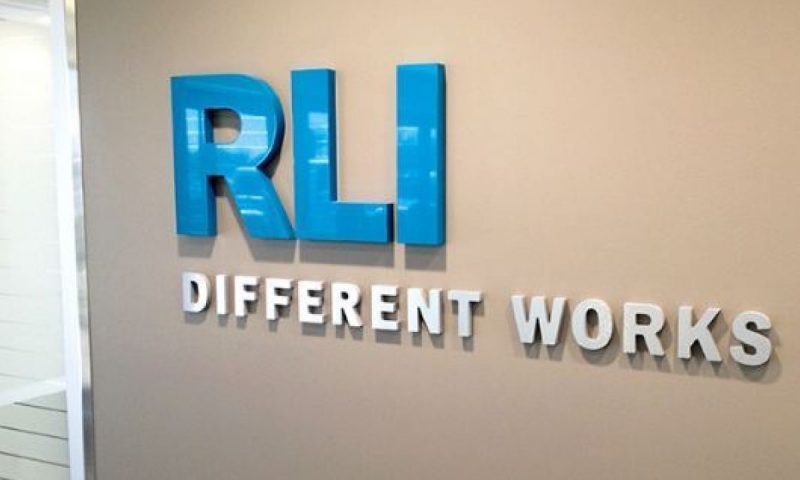RLI Corp. (DE) (RLI) had a rough trading day for Friday November 29 as shares tumbled 7.51%, or a loss of $-7.42 per share, to close at $91.37. After opening the day at $94.94, shares of RLI Corp. (DE) traded as high as $94.94 and as low as $90.30. Volume was 733,527 shares over 8,365 trades, against an average daily volume of n/a shares and a total float of 44.84 million.
As a result of the decline, RLI Corp. (DE) now has a market cap of $4.1 billion. In the last year, shares of RLI Corp. (DE) have traded between a range of $99.93 and $64.48, and its 50-day SMA is currently $n/a and 200-day SMA is $n/a.
RLI underwrites property and casualty insurance through major subsidiaries. The company offers insurance coverage in the specialty admitted market, where the products are designed for unique risks. It also offers products in the excess and surplus markets, which provides an alternative for customers with risks or loss exposures that generally cannot be written in the standard admitted market. RLI distributes property and casualty insurance through its wholly owned branch offices that market to wholesale and retail producers. The company’s insurance operation segments include casualty, property, and surety.
RLI Corp. (DE) is based out of Peoria, IL and has some 912 employees. Its CEO is Jonathan E. Michael.
RLI Corp. (DE) is a component of the Russell 2000. The Russell 2000 is one of the leading indices tracking small-cap companies in the United States. It’s maintained by Russell Investments, an industry leader in creating and maintaining indices, and consists of the smallest 2000 stocks from the broader Russell 3000 index.
Russell’s indices differ from traditional indices like the Dow Jones Industrial Average (DJIA) or S&P 500, whose members are selected by committee, because they base membership entirely on an objective, rules based methodology. The 3,000 largest companies by market cap make up the Russell 3000, with the 2,000 smaller companies making up the Russell 2000. It’s a simple approach that gives a broad, unbiased look at the small-cap market as a whole.

